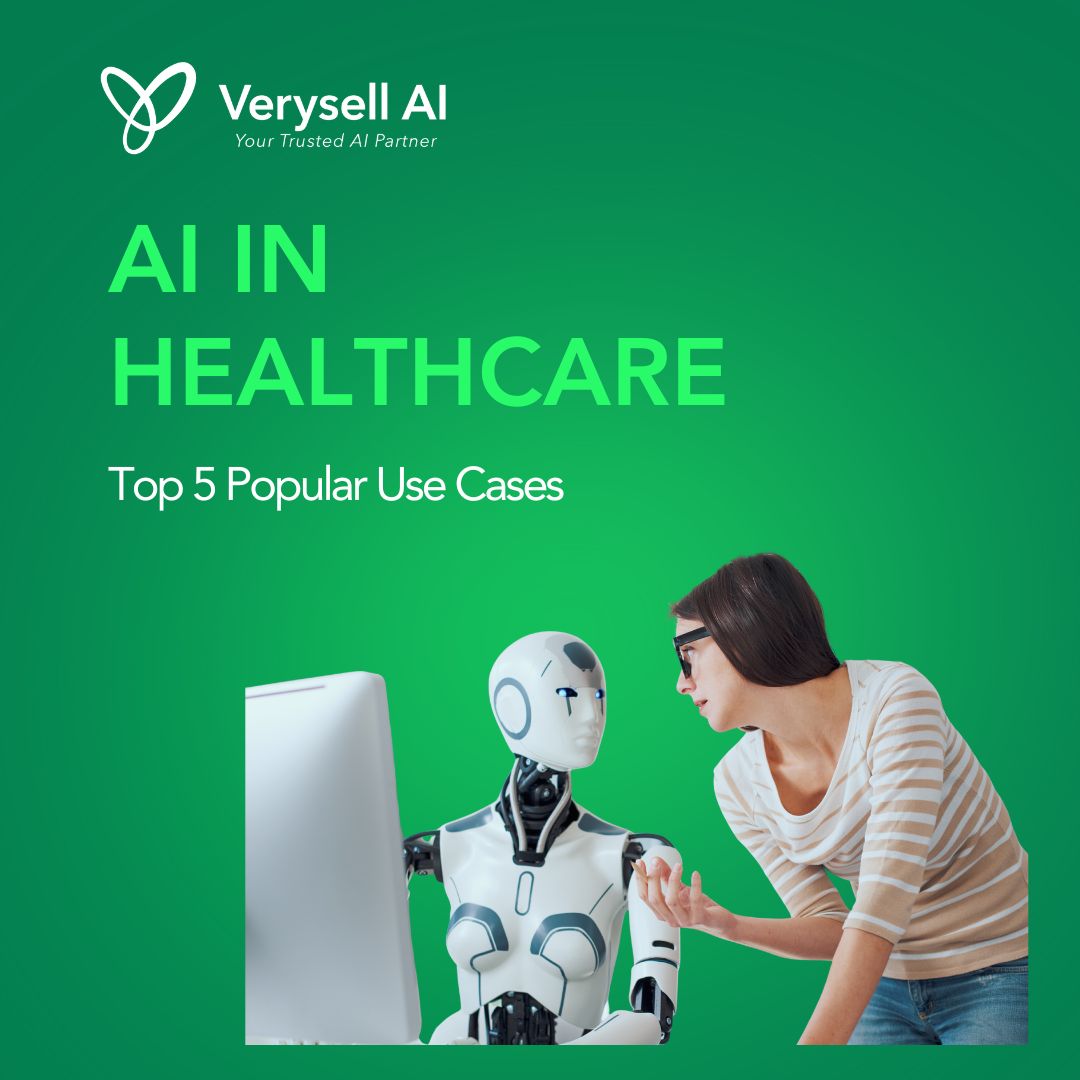AI use cases in healthcare industry is various and it represents a groundbreaking development, providing innovative solutions that improve the quality, efficiency, and accessibility of medical services. By utilizing AI algorithms and machine learning (ML) models, it can rapidly and accurately analyse large datasets, revealing patterns and insights that were previously unattainable for humans. Rising expenses, provider fatigue, and the growing need for individualised patient care are all problems facing healthcare systems throughout the globe. This article examines how AI is changing patient experiences, healthcare procedures, and results.
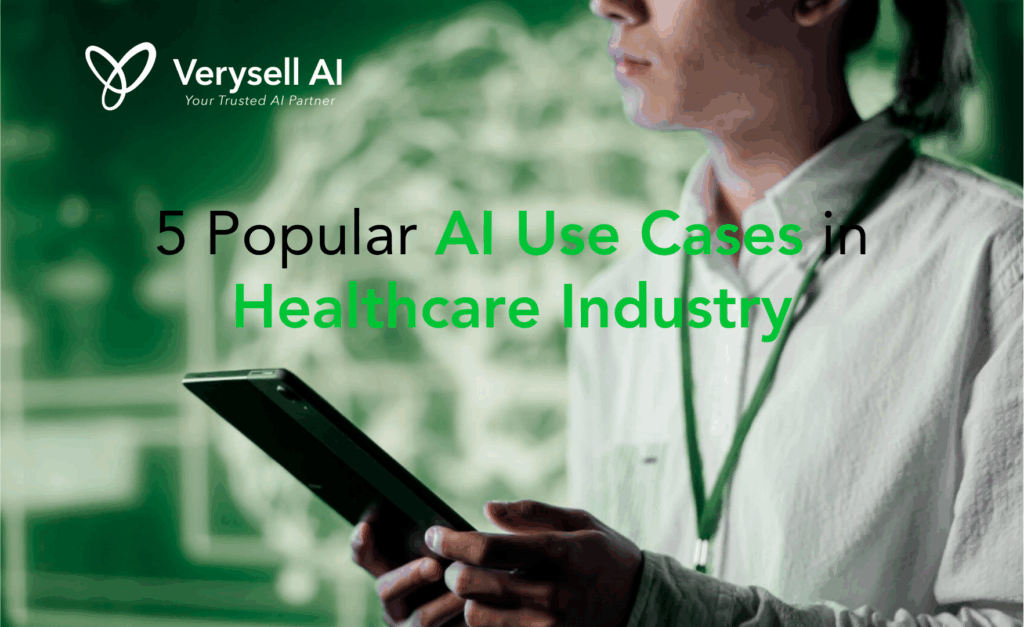
Not only focusing on AI use cases in healthcare industry, we also work on BFSI, supply chain and manufacturing industry. Click here to read more blog posts about other industries! AI in healthcare industry refers to the application of artificial intelligence technologies to enhance various aspects of healthcare delivery, including diagnosis, treatment, drug discovery, and administrative tasks. It leverages machine learning, natural language processing, and other AI techniques to analyze complex medical data, automate processes, and improve patient care.
Key Statistics Highlighting AI Adoption in Healthcare Industry
The adoption of AI in healthcare is accelerating rapidly. According to Deloitte’s 2024 report, 80% of hospitals are now utilizing AI for workflows or patient care, with 46% employing generative AI tools. Furthermore, over 340 FDA-approved AI systems are currently in use for diagnostics, aiding in the detection of conditions such as stroke, brain tumors, and breast cancer with improved speed and accuracy.
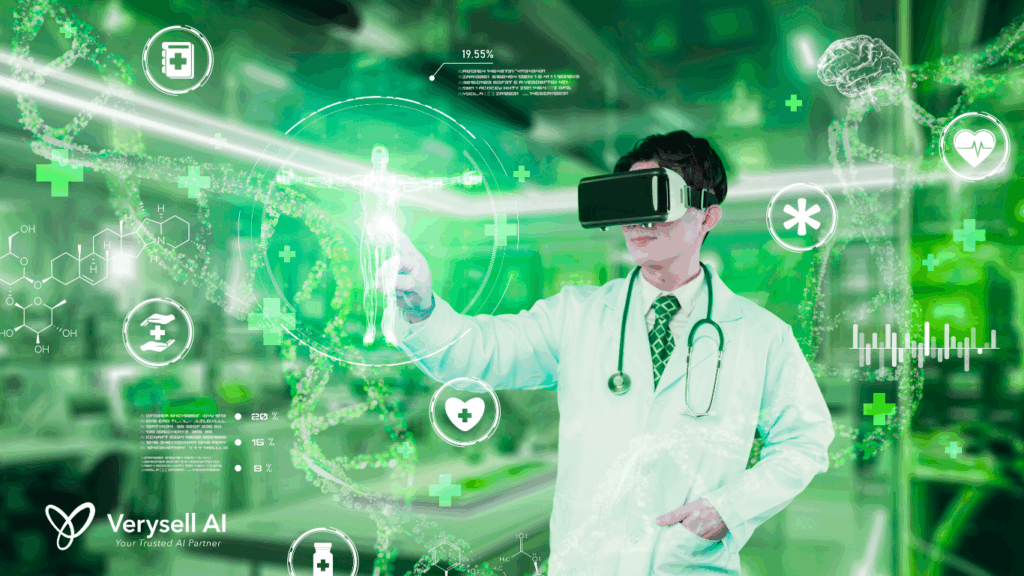
Healthcare executives are highly in favor of integrating AI, with 95% supporting its adoption and 72% already implementing generative AI in some form. This widespread endorsement indicates a growing acknowledgment of AI’s potential to enhance operational efficiency and clinical results. For early adopters, the return on investment is significant. Organizations report earning $3.20 for every dollar invested in AI, often realizing these benefits within 14 months through cost savings and quicker, more precise decision-making (Maivan, 2025).
Top AI Use Cases in Healthcare Industry
1. AI-Powered Diagnostics and Early Detection
AI’s ability to assist in diagnostics is one of the most promising aspects of its integration into healthcare (Park University, 2024). Machine learning (ML) and deep learning models can process vast amounts of medical data such as medical images, test results, and patient records faster and more accurately than human practitioners. By identifying patterns and anomalies in medical data, AI can help healthcare professionals diagnose conditions earlier, often before symptoms manifest.
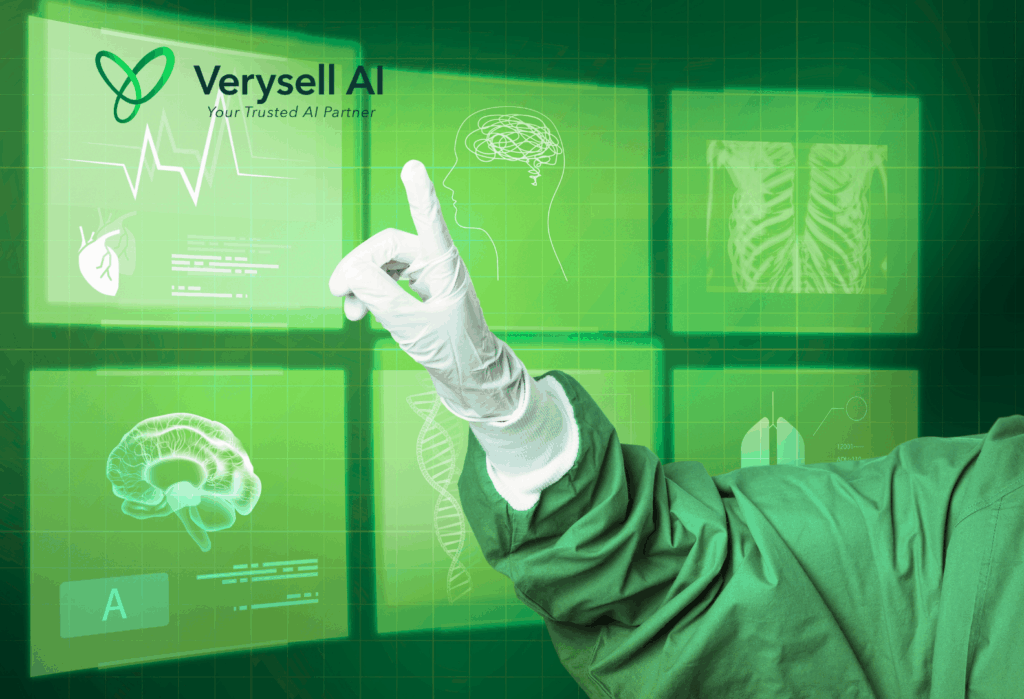
Examples of AI use cases in healthcare industry for empowering diagnostics:
- Medical Imaging: AI-powered tools are capable of analyzing radiology images, such as X-rays, MRIs, and CT scans, to detect signs of diseases like cancer, pneumonia, and fractures (Hosny et al., 2018). Companies like Zebra Medical Vision and Aidoc have created AI solutions that assist radiologists in identifying these abnormalities with greater accuracy.
- Pathology: AI also plays a critical role in pathology, where algorithms analyze tissue samples to identify cancerous cells (Wang et al., 2025). PathAI is an example of a company that uses AI to assist pathologists in detecting and classifying diseases, improving diagnostic accuracy and speeding up the process.
2. Personalised Treatment Plans
Personalized medicine is an emerging field in AI use cases in healthcare industry, and AI is a key enabler in creating highly individualized treatment plans for patients. By analyzing vast amounts of data from patient records, genetics, and real-time health monitoring, AI use cases in healthcare industry to predict how patients can respond to specific treatments, allowing healthcare providers to tailor therapies to each individual.

AI use cases in healthcare industry in personalised machine:
- Genomic Medicine: AI-powered tools like IBM Watson for Genomics analyze a patient’s genetic information to identify mutations that could influence the development of diseases or response to treatment (Johnson et al., 2020). By predicting a patient’s susceptibility to certain conditions or how they might respond to drugs, AI enables doctors to make more informed decisions.
- Predictive Analytics for Chronic Diseases: AI can also help in the management of chronic diseases like diabetes or heart disease (Shen AI, 2025). By continuously analyzing data from wearable devices or patient records, AI can predict potential complications, suggest preventative measures, and recommend adjustments to treatment plans in real time.
3. AI for Drug Discovery and Development
The drug discovery process is long, expensive, and fraught with uncertainty. However, AI is revolutionizing this process by enabling faster and more efficient drug discovery. By using machine learning models to analyze vast datasets of molecular structures, AI can predict which compounds are likely to be effective in treating specific diseases.
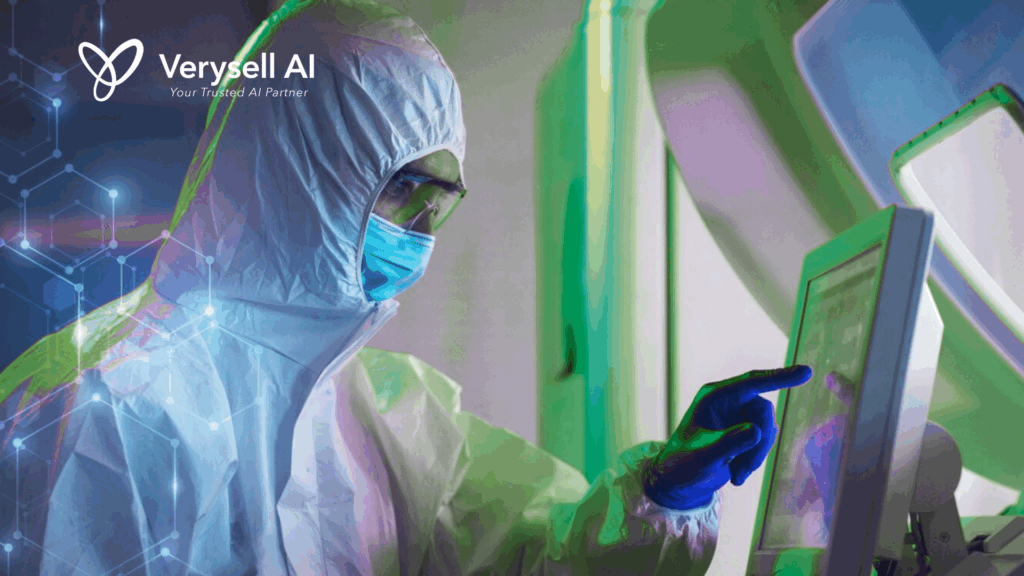
AI in drug development:
- Early-Stage Drug Discovery: Companies like Atomwise and Insilico Medicine are using AI to predict the potential efficacy of new drugs by analyzing the molecular structures and identifying patterns that human researchers may miss (Mohammed, 2024). This accelerates the drug development process and helps identify promising candidates that can be further developed.
- Clinical Trials: AI is also improving clinical trials by helping researchers identify the most appropriate candidates for participation, analyzing trial data more efficiently, and predicting potential side effects. This not only speeds up the trial process but also reduces the risk of failure during clinical development.
4. AI in Healthcare Administration and Workflow Optimisation
In addition to its applications in direct patient care, AI is also transforming the administrative side of healthcare. Administrative tasks such as scheduling, billing, and managing patient data can be time-consuming and prone to human error. AI-powered tools can automate these processes, freeing up time for healthcare providers to focus on patient care.

AI use cases in healthcare industry in administration:
- Scheduling and Appointment Management: AI-powered systems can automate scheduling by analyzing doctor availability and patient preferences, reducing appointment conflicts and enhancing the patient experience. For example, AI chatbots can interact with patients to book, reschedule, and confirm appointments autonomously (Esmaeilzadeh et al., 2025).
- Billing and Claims Processing: AI tools are also being used to streamline billing and claims processing. By automatically reviewing medical records and matching them with billing codes, AI can help reduce errors in insurance claims and speed up reimbursements (Pingili, 2025). This ensures greater accuracy and timely payment for healthcare providers.
- Patient Data Management: AI systems are improving the way patient data is managed, ensuring quick access to critical information (Varnosfaderani and Forouzanfar, 2024). This includes sorting, storing, and organizing large volumes of patient data, which is crucial for patient care and continuity. AI can automatically detect discrepancies in patient records, improving data integrity and reducing administrative workload.
5. AI for Remote Patient Monitoring and Telemedicine
Remote patient monitoring (RPM) and telemedicine have gained significant traction in recent years, especially due to the ongoing need for social distancing and the rising demand for at-home healthcare solutions. AI is playing a pivotal role in making these solutions more effective, allowing patients to receive continuous care from the comfort of their homes, while healthcare providers can monitor their health remotely.
AI use cases in healthcare industry related to remote Monitoring and Telemedicine:
- Wearables and IoT Devices: AI-integrated wearables and IoT devices are continuously collecting health data, such as heart rate, blood pressure, glucose levels, and sleep patterns. By analyzing this data in real-time, AI can provide early warnings of potential health issues, such as arrhythmias or blood sugar imbalances (Guan et al., 2023).
- Chronic Disease Management: AI can be used to monitor patients with chronic conditions like diabetes, asthma, or heart disease (Dong et al., 2025). By analyzing patient data from home monitoring devices, AI can suggest changes in lifestyle or treatment plans, helping prevent complications and improving overall health outcomes.
- Telehealth Consultations: With the rise of telemedicine, AI tools are enhancing virtual consultations by supporting healthcare providers with decision-making. AI algorithms can analyze patient symptoms reported during telehealth visits, cross-reference with medical databases, and suggest diagnoses, thus aiding in faster and more accurate remote consultations (Alves et al., 2024).
The integration of AI use cases in healthcare industry has undoubtedly transformed the industry, from enhancing diagnostic accuracy to personalising treatment plans, improving administrative efficiency, and facilitating remote care. As the technology continues to evolve, we can expect even more sophisticated AI applications that will revolutionize patient care, reduce healthcare costs, and improve overall health outcomes globally. Contact us to see more about our services and solutions!


